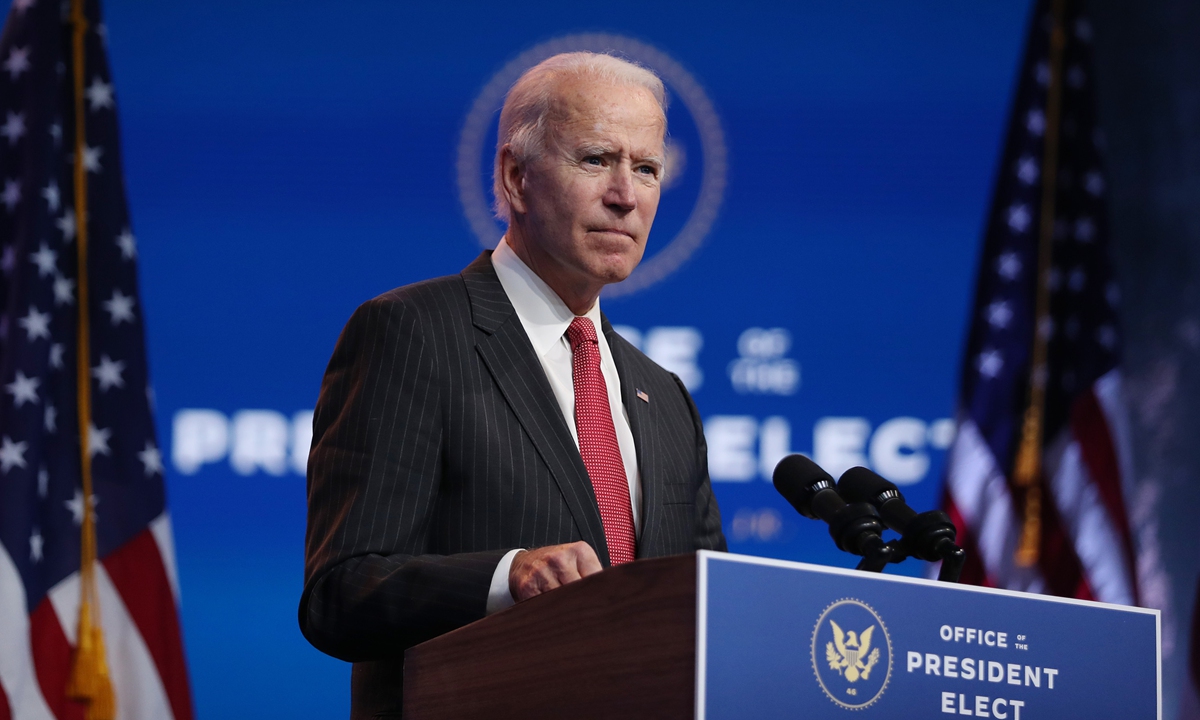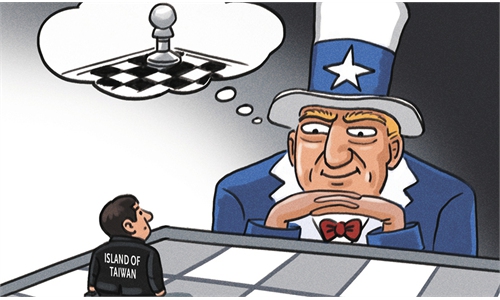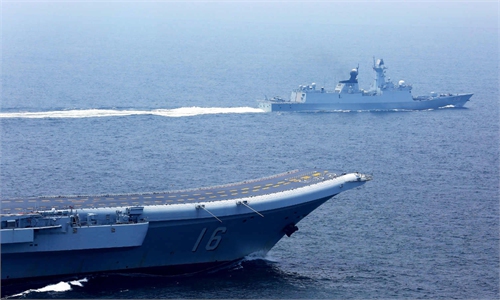
Biden Photo: AFP
After the establishment of diplomatic relations between China and the US in 1979, US administrations have pursued a policy of "strategic ambiguity" over whether to use military force to assist the defense of Taiwan. The US opposes a reunification by force. But it is also unwilling to state clearly the circumstances of defending Taiwan. The US uses a policy of "strategic ambiguity" to form a "dual deterrence" method for managing its interests in the Straits. This policy aims to deter the mainland from resorting to force against Taiwan and simultaneously make Taiwan authorities hold off from rashly declaring "independence." The US has long adopted "strategic ambiguity" to avoid being involved in conflicts and wars across the Taiwan Straits.Since taking office in 2017, Trump has regarded China as the US' strategic competitor and fully used the Taiwan card to suppress the mainland. At the military level, the Trump administration has strengthened Taiwan's military position as a first island chain hub, supported Tsai Ing-wen authorities in "resisting reunification by force," and assisted Taiwan to develop "asymmetrical warfare" capabilities against the mainland. To this end, the Trump administration has frequently sold more offensive weapons and equipment to Taiwan and has continuously sent military aircraft and warships to patrol and cruise around the island and Straits.
The Trump administration's policy changes toward Taiwan have seriously challenged the political foundation of China-US relations and the one-China principle, triggering discussions in the US academic circle about whether the US would abandon the policy of "strategic ambiguity." Richard Hass, president of the Council on Foreign Relations, believes that the US needs to adopt "strategic clarity," offering "unambiguous support" to Taiwan. However, many scholars in the US oppose the policy of "strategic clarity." Michael Swaine, a senior researcher at the Carnegie Endowment for international Peace, believes that the US should not provide a blank check security guarantee to the island.
Biden will likely keep the status quo of the old policies. First, the policy of "strategic ambiguity" was formed by the US in its long-term handling of complex affairs across the Taiwan Straits. With the intensification of the strategic competition between China and the US, there will be both a competitive side and conflict risk mitigation mechanism in US policy. One of the Biden administration's strategic goals will be avoiding involvement in a real military conflict and war against China in the Taiwan Straits, while simultaneously increasing involvement in cross-Straits affairs to delay its reunification process.
Judging from its policy orientation, Biden's team does not approve of the Trump administration's approach of frequently irritating China with high profile stunts that use Taiwan as a strategic chess piece. It prefers to maintain a relatively balanced situation across the Taiwan Straits. If the Biden administration moves from the policy of "strategic ambiguity" to "strategic clarity" and unilaterally expresses its clear assistance in defending Taiwan, it will undoubtedly create major tensions and turbulence across the Taiwan Straits. This will hinder the US from playing an "offshore balancing" act.
Second, the policy of "strategic clarity" requires the US to have the military capability to fully assist in the defense of Taiwan, which is far from the assessment of the US strategic circle. In recent years, the US security circle has paid more attention to the impact of the continuous growth of China's military power and how this will influence the US' involvement in a war across the Taiwan Straits. Most analysts believe that once a military conflict breaks out in the Taiwan Straits, it's difficult for the US to intervene and win the battle in a timely and effective manner. Therefore, a policy of "strategic clarity" will not deter China.
Third, a policy of "strategic clarity" will reduce the constraints on Taiwan's move toward seeking independence through promoting constitutional amendment and referendum. An important consideration for the US' insistence on "strategic ambiguity" is to avoid sending signals to Taiwan that the US will defend it unconditionally. To a certain extent, it restrains the "secessionist forces" in Taiwan from promoting separatist activities. This is done in order to prevent the US from becoming involved in a conflict or war against China. That will not change during the Biden administration.
The author is deputy director of Institute of Taiwan Studies of the Chinese Academy of Social Sciences.
The article was translated by Lü Shuzhen of East China Normal University.


